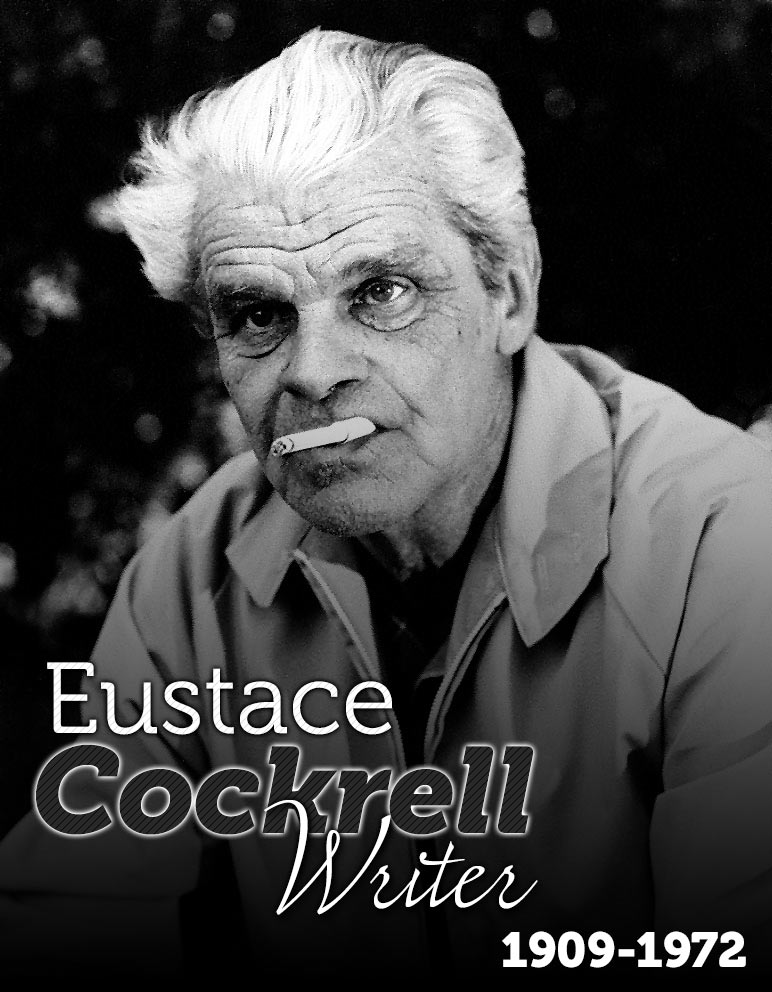Eustace Cockrell (1909 – 1972) is an American writer whose works encompassed the transition from the pulp fiction magazines of the 1930s to the television shows of Hollywood’s “Golden Age” of the 1950s.
This website is dedicated to the recognition of Cockrell’s contribution as a pioneering writer through the promotion of his literary works and the re-telling of his stories.
This recognition includes sections on the author’s BIOGRAPHICAL INFORMATION; a listing of Eustace Cockrell’s SHORT STORIES, both published and unpublished (the latter courtesy of the Cockrell family); and information on his writing career involving both MOVIE and TELEVISION SCREENPLAYS.
All of Eustace Cockrell’s pre-television stories have now been collected and published in a five-volume set of BOOKS edited by Cockrell’s son-in-law, Roger Coleman with information included on how these stories may be obtained. The READING ROOM offers three Cockrell short stories from 1936, 1946 and 1956. CONTACT US is an invitation to share additional information about the author and his literary contributions.
A sixth volume, Hollywood Stories, is now available featuring a collection of television stories and scripts by Cockrell.
A collection of this magnitude is not achieved without significant assistance and guidance from others. Deserving of special recognition are members of the entire Cockrell family for their generous support in compiling “Eustie’s” Collected Works; the assistance of Phil Stephensen-Payne in identifying Cockrell’s early works; and the expertise of Doug Weaver, publisher at Mission Point Press, for his guidance in making the transition from the collecting of Cockrell’s stories to envisioning how they might be shared with others.
Eustace Cockrell may not have been the most prolific of the early Hollywood writers but the integrity with which he lived and wrote captured life for a generation that experienced the Great Depression and WWII and were fortunate enough to witness the creative programming of early television. Cockrell wrote the stories and told the tales of life as he experienced it – always hopeful, always uplifting and forever insightful.

